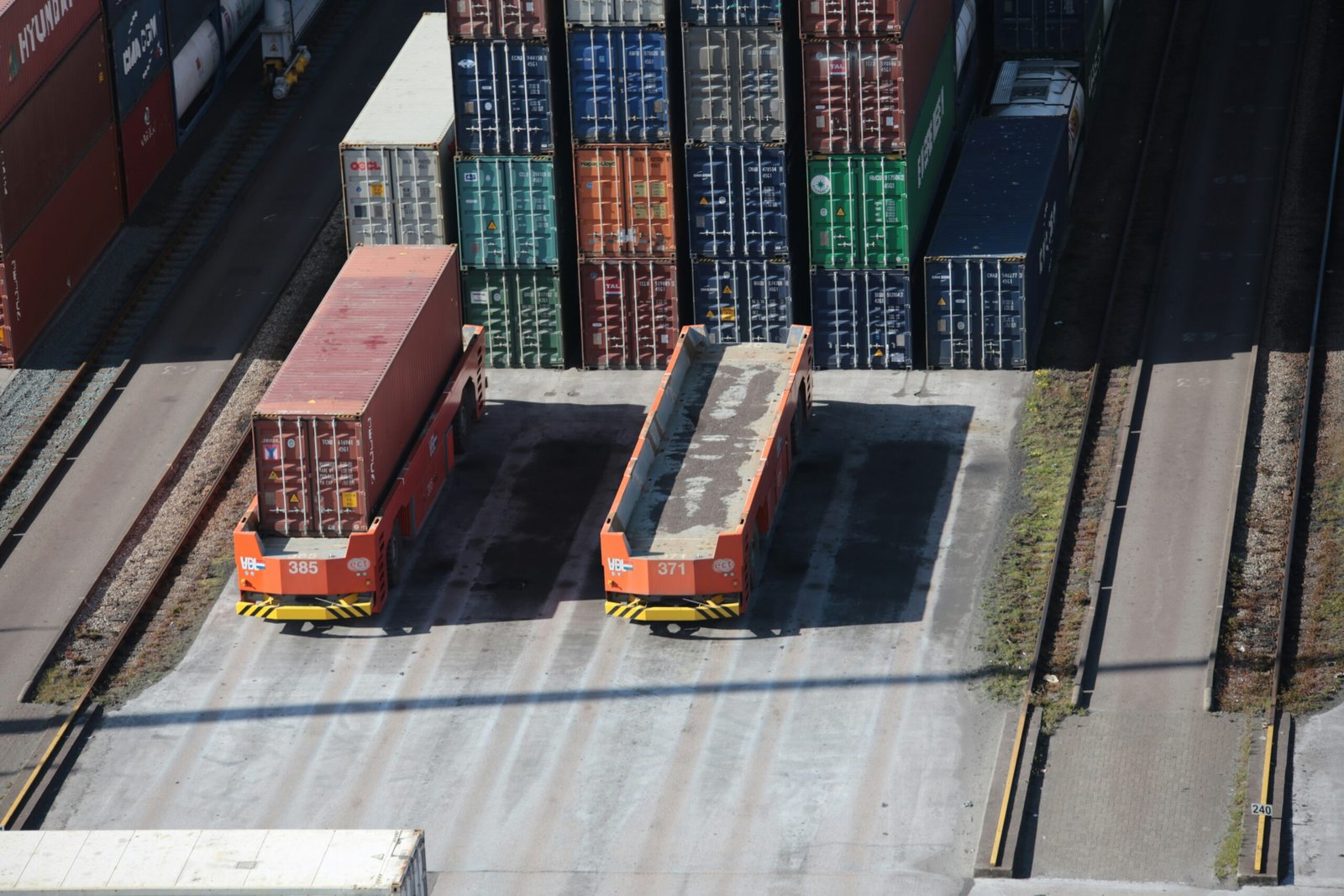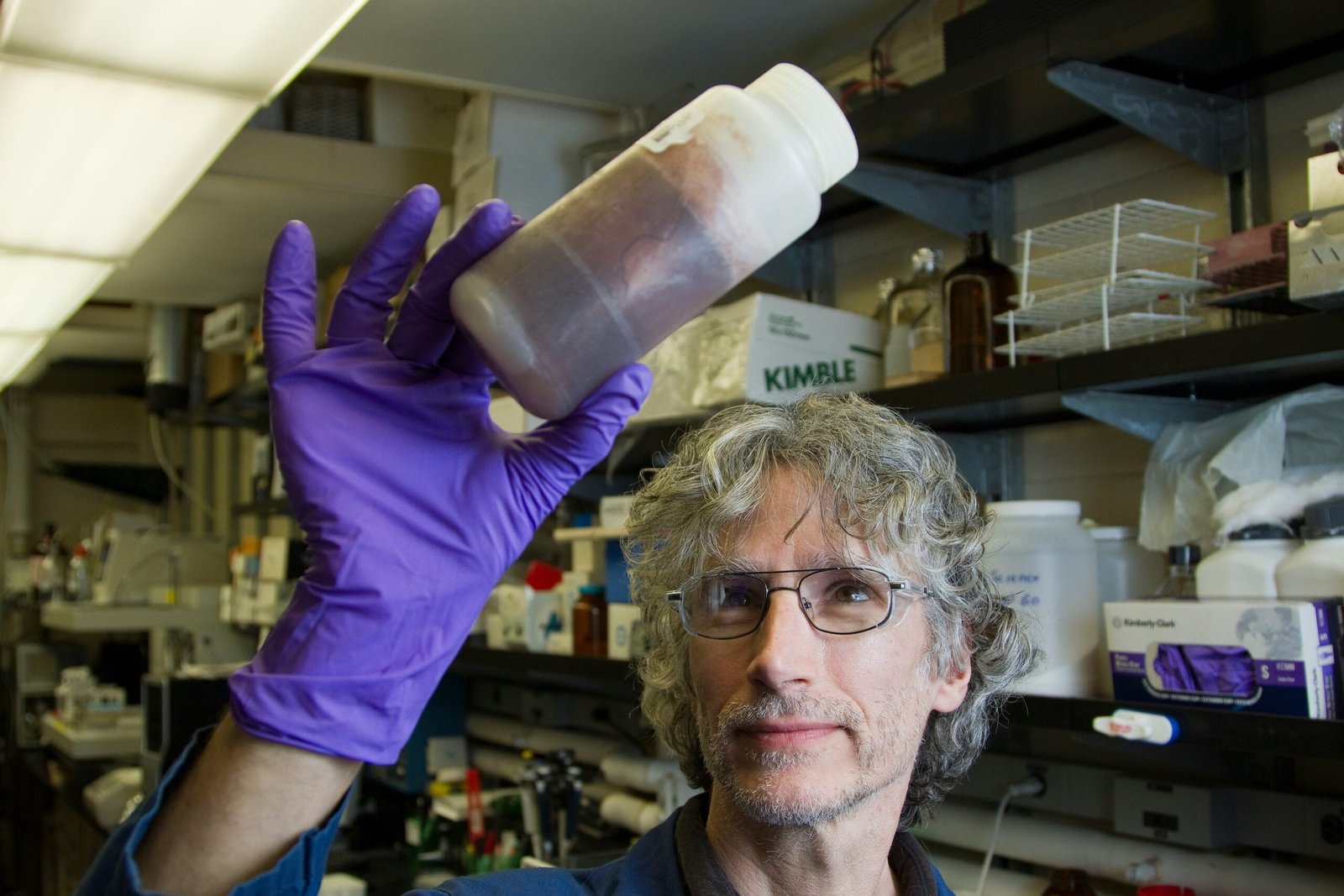Introduction to Biomanufacturing
Biomanufacturing is a pivotal process that leverages biological systems and living organisms to produce a wide range of biological products, including pharmaceuticals, food, and biofuels. It is an essential component of the biotechnology sector, enabling the eco-friendly and efficient production of substances that are vital for human health and the global economy. Traditional manufacturing techniques often rely on chemical synthesis and resource-intensive methods, which can lead to environmental concerns and safety risks. In contrast, biomanufacturing employs microorganisms, plant cells, and other biological entities to generate products through processes that are typically less harmful to the environment.
The significance of biomanufacturing has grown exponentially in recent years, particularly as the demand for sustainable and innovative solutions to global challenges intensifies. For instance, the production of insulin for diabetes management through recombinant DNA technology exemplifies how biomanufacturing has transformed pharmaceutical development. Similarly, biomanufactured food products, such as plant-based proteins and biofuels, are emerging as sustainable alternatives to their conventional counterparts. These innovations not only address the pressing need for sustainable production methods but also offer opportunities for improving health outcomes and minimizing environmental impact.
Despite its advancements, the field of biomanufacturing faces various challenges, including inefficiencies in production, long development timelines, and difficulties in scaling processes. These issues underscore the necessity for innovative solutions to optimize operations and enhance productivity. The integration of artificial intelligence (AI) technologies into biomanufacturing processes presents a promising avenue for overcoming these hurdles. AI can facilitate more efficient resource utilization, improve process monitoring, and enable better decision-making, thus transforming the landscape of biomanufacturing. As we delve deeper into this topic, it is crucial to understand the traditional approaches and the role AI can play in revolutionizing production in the industrial biotechnology realm.
The Role of AI in Biomanufacturing
Artificial intelligence (AI) is increasingly becoming a critical component in the biomanufacturing sector, where it enhances process efficiencies, improves product quality, and reduces overall production costs. The integration of AI technologies enables manufacturers to optimize various stages of the production process, from raw material procurement to the final product output. Machine learning algorithms, for instance, can analyze vast datasets to identify patterns and trends, helping to fine-tune processes and predict outcomes more accurately.
One of the most compelling applications of AI in biomanufacturing is predictive maintenance, where AI systems monitor equipment performance and detect anomalies in real-time. This proactive approach not only minimizes downtime but also ensures that production proceeds smoothly. Another significant application is in quality control, where AI-driven image recognition tools assess product quality at various stages of manufacturing. These systems can identify defects or deviations from desired standards much faster and more accurately than traditional methods, leading to higher product reliability.
Real-world examples of AI application in biomanufacturing are already yielding promising results. For instance, a biopharmaceutical company employed AI algorithms to streamline its fermentation processes, resulting in a 30% increase in yield while substantially reducing costs associated with raw materials. Furthermore, AI platforms are revolutionizing supply chain logistics by predicting demand fluctuations and optimizing inventory levels, ensuring that companies can compete effectively in a demanding market.
These advancements illustrate the transformative potential of AI within the biomanufacturing landscape. As AI technologies continue to evolve, their implementation will further refine production processes, enhance product consistency, and ultimately lead to a more sustainable and efficient manufacturing environment. The proliferation of AI in this field marks a pivotal shift towards a smarter production paradigm.
Key Technologies Driving AI-Powered Biomanufacturing
AI-powered biomanufacturing leverages various advanced technologies to enhance production processes and optimize efficiency. Three integral technologies that underpin this transformation include machine learning, robotics, and big data analytics. These technologies work synergistically to enable more streamlined operations and improved decision-making in biomanufacturing environments.
Machine learning serves as a foundational element in AI-powered biomanufacturing, enabling systems to analyze vast datasets and identify patterns that may not be immediately apparent. By automating the analysis of production data, machine learning algorithms can predict equipment failures, optimize production schedules, and enhance product yields. As a result, manufacturers can reduce waste and increase operational agility, thereby significantly improving overall productivity.
Complementing machine learning, robotics plays a pivotal role in automating repetitive tasks in biomanufacturing. Advanced robotic systems can perform various functions, including material handling, quality control, and even complex assembly tasks with precision and speed. These robotic systems are often equipped with AI capabilities, allowing them to adapt to changes in the production environment and collaborate safely with human workers. This integration not only enhances the efficiency of production processes but also minimizes the risk of human error.
Furthermore, big data analytics is essential for driving insights and informed decision-making. The biomanufacturing process generates a vast amount of data, which can be harnessed to improve every aspect of production. By analyzing this data, manufacturers can track performance metrics, assess operational bottlenecks, and apply predictive analytics to foresee potential disruptions. This data-driven approach allows companies to optimize their biomanufacturing operations on a continuous basis, ensuring they remain competitive in a rapidly evolving landscape.
Challenges and Limitations of AI in Biomanufacturing
The integration of artificial intelligence (AI) within the biomanufacturing sector offers tremendous potential but is not without its challenges and limitations. One significant issue concerns data privacy. Biomanufacturing often involves sensitive information, including proprietary formulations and patient data. Ensuring the security of this information while leveraging AI algorithms for insights presents a nuanced challenge. Organizations must navigate compliance with regulations, especially under frameworks like the General Data Protection Regulation (GDPR), which imposes strict guidelines on data handling and privacy. Failure to comply can result in substantial fines and loss of consumer trust.
Another considerable barrier to AI adoption in biomanufacturing is the high cost associated with implementing these advanced technologies. The initial investment in infrastructure, cutting-edge software, and skilled labor can be substantial. Small to medium-sized enterprises (SMEs) may struggle financially to adopt AI tools, potentially widening the gap between larger corporations and smaller competitors. Furthermore, the ongoing maintenance and upgrading of AI systems demand a continuous financial commitment, which can be a deterrent for many organizations.
Regulatory hurdles also pose a critical limitation to the deployment of AI in biomanufacturing. The industry is heavily regulated, and the introduction of AI-driven processes complicates the existing compliance landscape. Approval from regulatory bodies can be a protracted process, requiring extensive validation of AI systems to ensure they meet safety and efficacy standards. This can delay the implementation of promising AI solutions, hindering innovation and slowing the pace at which AI can transform the biomanufacturing landscape.
Overall, while AI presents significant opportunities for optimization and efficiency, understanding and addressing these challenges is crucial to realizing its full potential within the biomanufacturing industry.
Case Studies: Successful AI-Powered Biomanufacturing Implementations
The integration of artificial intelligence (AI) into biomanufacturing has shown promising results across various companies, transforming their production processes and enhancing efficiency. One notable case study is that of a multinational pharmaceutical company which implemented AI-driven predictive analytics in its biomanufacturing operations. By utilizing machine learning algorithms, the company analyzed historical production data to optimize fermentation conditions for its biopharmaceutical products. This approach not only improved yield by 20% but also significantly reduced production time, thus leading to substantial cost savings.
Another example can be seen in a biotech startup focused on vaccine development. The company adopted AI-powered robotic systems to automate the extraction and purification of immunogenic proteins. These systems utilized computer vision and machine learning to monitor the purification process, ensuring high purity levels while minimizing human error. The result was a 30% reduction in labor costs and a more reliable output quality, enabling the company to meet urgent public health demands more effectively.
Furthermore, a large agro-biotechnology firm leveraged AI to forecast the outcomes of various genetically modified organisms (GMOs) produced in their manufacturing facilities. By employing advanced data analytics and simulation models, the firm was able to predict crop resilience and yield performance before actual cultivation. This predictive capability allowed for more informed decision-making in the development of new GMOs, aligning production with market demands and decreasing time-to-market significantly.
These case studies illustrate not only the application of various AI techniques such as machine learning and predictive analytics but also highlight the challenges faced during implementation, including data integrity and workforce training. Overall, companies that have adopted AI technology within their biomanufacturing processes have found tangible benefits, showcasing the transformative potential of AI in improving production efficiency and product quality.
Future Trends in AI-Powered Biomanufacturing
The landscape of biomanufacturing is rapidly evolving, driven by the transformative capabilities of artificial intelligence (AI). One notable trend is the emergence of personalized medicine, which leverages AI to analyze an individual’s genetic and environmental data to develop tailored therapeutic solutions. This not only enhances treatment efficacy but also optimizes production processes by enabling manufacturers to create targeted biological products that meet specific patient needs. As AI algorithms become increasingly sophisticated, they will facilitate the development of biomanufactured products that are more efficient and effective.
Advanced bioprocessing is another area poised for significant advancement. AI technologies are already streamlining various stages of the biomanufacturing process, from fermentation to purification. Machine learning models can predict the outcomes of various bioprocess parameters, leading to optimized production cycles and reduced waste. As real-time data analytics become standard, manufacturers will have the capability to monitor processes more effectively, ensuring consistency and quality in biological product output. This shift towards data-driven biomanufacturing represents a substantial leap forward in operational efficiency.
Moreover, the integration of AI in research and development (R&D) is set to revolutionize biomanufacturing. AI techniques, such as natural language processing and predictive analytics, enable researchers to analyze vast datasets rapidly, uncovering patterns and insights that might otherwise go unnoticed. This capability accelerates the discovery of new biotechnological methods and materials, further enhancing biomanufacturing processes. The automation of these R&D functions not only speeds up innovation but also significantly lowers research costs.
In conclusion, the future of AI-powered biomanufacturing is brimming with potential. The convergence of personalized medicine, advanced bioprocessing, and AI-enhanced R&D will undoubtedly reshape the production landscape, driving greater efficiency and effectiveness across the sector. As these trends continue to unfold, the impact on healthcare and biotechnology will be substantial, paving the way for advancements that could change the lives of many.
Regulatory Considerations in AI-Powered Biomanufacturing
The integration of artificial intelligence into biomanufacturing presents both immense opportunities and complex regulatory challenges. As AI technologies continue to evolve, regulatory bodies must adapt existing frameworks to ensure the safe and effective deployment of these innovative systems. Currently, biomanufacturing is heavily regulated under a multitude of frameworks including those established by the Food and Drug Administration (FDA) and other international standards. These regulations emphasize product safety, efficacy, and quality, which remain paramount in the biopharmaceutical industry.
One critical aspect affecting AI in biomanufacturing is the classification of AI systems. They may be viewed as software or devices depending on their specific functions and applications. This distinction significantly impacts the regulatory pathway and the level of scrutiny an AI-enabled system may encounter. Moreover, considerations surrounding data privacy, algorithm transparency, and ethical concerns regarding decision-making processes must be acknowledged. As AI systems can learn and evolve, maintaining compliance with established protocols becomes increasingly challenging. Regulatory bodies are tasked with addressing these issues without hindering innovation.
To support the integration of AI within biomanufacturing, regulatory frameworks may benefit from a more flexible and adaptive approach. One potential strategy includes creating a risk-based framework that categorizes AI systems based on their use, complexity, and risk to patient safety. This could involve establishing guidelines for real-time monitoring and continuous evaluation of AI performance throughout the product lifecycle. Additionally, fostering collaborative partnerships between regulators, industry leaders, and technology developers is essential to share insights and best practices, ultimately ensuring compliance with health and safety standards while promoting innovation in AI applications.
Sustainability and Ethical Considerations
The integration of artificial intelligence (AI) into biomanufacturing processes opens up a new realm of possibilities, particularly in enhancing sustainability and addressing ethical considerations. By leveraging AI technologies, industries can optimize resource use and minimize waste, making production systems more efficient and environmentally friendly. This is particularly crucial in light of the pressing global challenges related to climate change and resource depletion, where traditional manufacturing methods often leave significant ecological footprints.
AI-driven biomanufacturing can significantly lower energy consumption and decrease greenhouse gas emissions, aiding efforts towards sustainability. Through predictive analytics, AI can enhance the fermentation and cultivation processes, allowing for the precise adjustment of conditions that maximize yield while minimizing inputs. Such innovations enable companies to produce bioproducts using fewer natural resources, thereby supporting a circular economy and reducing environmental impacts.
However, with the advancements in AI technology come ethical responsibilities. The deployment of AI in biomanufacturing must be guided by a commitment to transparency, accountability, and fairness. This includes ensuring that AI systems do not perpetuate biases or lead to discrimination in research and production practices. It is critical for companies to engage in ethical considerations during the development and implementation of AI technologies to safeguard human interests and preserve ecological balance.
Moreover, the social responsibilities of organizations employing AI in biomanufacturing cannot be overstated. They must prioritize community engagement and consider the implications of their technologies on local populations and economies. This involves adhering to ethical guidelines and fostering a transparent dialogue with stakeholders, including consumers, regulators, and the communities affected by their operations.
As AI technology continues to evolve within biomanufacturing, it is essential to foster sustainable practices while intricately weaving ethical considerations into the fiber of production methodologies, ultimately guiding industries towards a more responsible future.
Conclusion: The Path Forward for AI-Powered Biomanufacturing
As we navigate the evolving landscape of biomanufacturing, it is evident that the integration of artificial intelligence (AI) plays a vital role in shaping the future of production. The transformative potential of AI in biomanufacturing encompasses enhanced efficiency, reduced costs, and improved product quality. Through AI-driven automation, the industry can streamline production processes, leading to significant advancements in sustainability and scalability.
The discussion throughout this blog post has highlighted several key innovations that AI brings to the biomanufacturing sector. From predictive analytics that optimize resource allocation to machine learning algorithms that refine production techniques, these technologies are revolutionizing how biological products are developed and manufactured. Furthermore, AI fosters a data-driven environment, allowing companies to harness vast amounts of information for better decision-making and continuous improvement.
Stakeholders in the biomanufacturing industry are encouraged to embrace these AI technologies, recognizing their potential to drive innovation and maintain a competitive edge. Collaboration between scientists, engineers, and technology providers is essential for the successful implementation of AI tools that address industry challenges. By investing in AI-powered solutions, organizations not only enhance their operational capabilities but also contribute to a future that prioritizes environmental sustainability and resource optimization.
Moving forward, it is crucial to remain agile and responsive to the rapid advancements in artificial intelligence, ensuring that strategies are adaptable. The path toward AI-powered biomanufacturing is not solely about automation; it involves creating a culture of innovation that capitalizes on technology to explore new horizons. Embracing AI’s full potential can lead to unprecedented growth opportunities within the biomanufacturing sector.



